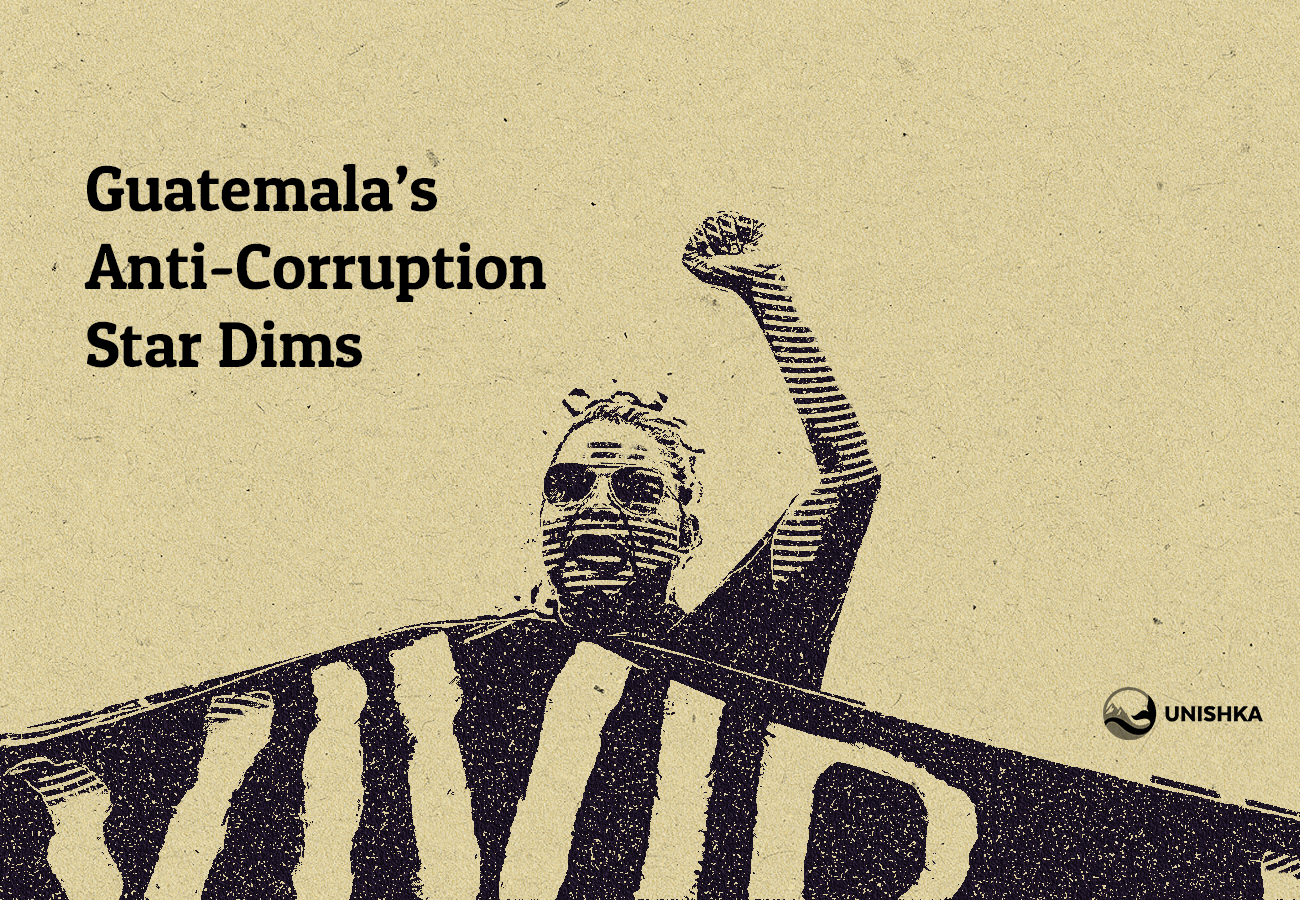
Guatemala’s Anti-Corruption Star Dims
26 May 2023 ( Foreign Policy )
Another Tick in the Autocracy Column?
Guatemala, Central America’s most populous country at over 17 million people, will hold presidential and parliamentary elections next month. A drumbeat of evidence of democratic backsliding has preceded the vote.
Last week, the top-polling presidential contestant became the latest candidate to be disqualified on grounds that were disputed as political, while leading newspaper elPeriódico ceased publication amid a suite of government investigations targeting its journalists as well as the arrest of its founder and four of its lawyers. The events sent a chilling effect across Guatemalan media, as the newspaper had a long history of scrutinizing corruption within the Guatemalan government.
Even if there is no overt tampering with ballot boxes on June 25, the congressionally chosen electoral court’s use of “lawfare tactics to veto legitimate candidates” has already resulted in a vote that “lacks electoral integrity,” political scientist Lucas Perelló wrote in a briefing for consultancy Politico Tech Global.
Conservative President Alejandro Giammattei cannot run for reelection due to term limits, but he is highly unpopular and his party’s candidate is trailing in polls. Still, analysts including Perelló told Foreign Policy that the entrenched financial and political elites that Giammattei represents extend far beyond his party, and that their influence on institutions like the courts appears to be neutralizing any true threats to the political status quo. The presidential hopeful that perhaps posed the biggest such threat, left-wing Indigenous organizer Thelma Cabrera, came near the vote threshold needed to make the presidential runoff in 2019—but she was among the first candidates disqualified for this year’s race back in February.
Guatemala’s democratic decline is all the more striking given the fact that it was celebrated as an international anti-corruption success story just a decade ago.
After the country emerged from a decadeslong civil war in 1996, local reformers and international aid organizations worked together to try to establish a Guatemalan justice system with integrity. The U.S. Agency for International Development has contributed to those efforts since the 1990s, and in 2007, the United Nations partnered with Guatemalan prosecutors to set up an anti-corruption task force that went on to investigate some of the country’s most powerful politicians. It was called the International Commission against Impunity in Guatemala, or CICIG by its Spanish acronym.
In 2015, revelations from the CICIG prompted mass anti-corruption protests in the country, leading some observers to say that a “Guatemalan Spring” was underway. But after the task force started investigating President Jimmy Morales in 2017, Morales’s government began to effectively shut it down. In the years since, authorities from the Giammattei administration have removed some of the boldest anti-corruption judges and prosecutors.
Activists, judges, and reports by nongovernmental organization monitors have all concluded that “what we’re experiencing in Guatemala is a kind of revenge against all the actors who worked with the CICIG,” journalist Jody García of Plaza Pública told Foreign Policy.
A permissive U.S. stance played a role in Morales’s closure of the CICIG. After Donald Trump became U.S. president in 2017, Washington went from being the CICIG’s public champion and biggest financial backer to staying largely silent about its dismantling. Former CICIG head Iván Velásquez told Reveal that Trump made a deal with Morales in which Trump stayed silent about corruption in Guatemala in exchange for Guatemala accepting asylum-seekers who were trying to travel north to the United States.
Officials in the Joe Biden administration, for their part, have repeatedly said that promoting good governance—including supporting both anti-corruption champions and journalists—is a key part of their strategy toward Central America. But in practice, jailed elPeriódico founder José Rubén Zamora told the New Yorker last month, press freedom appears to have been subsumed by other policy priorities. Washington is currently counting on Guatemala’s partnership to create regional processing centers for northbound migrants. U.S. officials have issued some statements about Zamora’s case, but “a tweet is not going to get me out of here,” he said.
Guatemala’s democratic backsliding is part of a broader Central American trend that includes dramatic crackdowns on dissent in Nicaragua and El Salvador. Yet there is one important exception in the neighborhood. In Honduras, political organizers remarkably threw off 12 years of rule by the same political party in November 2021. Perelló and political scientist Will Freeman wrote in the Journal of Democracy that “for opposition parties and movements elsewhere, Honduras offers an instructive example”: Even in what appeared to be a competitive authoritarian regime, years of “refusing to abandon the electoral area and investing in grassroots organizing” can bear fruit.
In Guatemala, it’s far harder to build the type of national grassroots movement that triumphed in Honduras because of the huge diversity between urban and rural communities, Freeman told Foreign Policy. Over 40 percent of Guatemalans identify as Indigenous, and many speak a variety of different Indigenous languages rather than Spanish. In Guatemala, both the opposition and the groups in power “are each more diverse than in Honduras,” he added.
Still, both scholars said, that doesn’t mean political organizing would be in vain. The opposition “should really engage in a meaningful process of party-building within the country,” Perelló said.
SEE THE ORIGINAL ARTICLE


